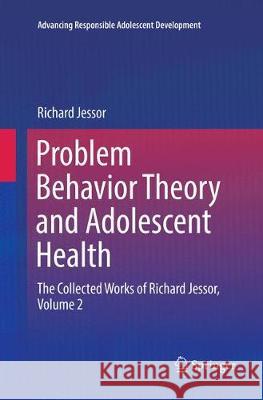Problem Behavior Theory and Adolescent Health: The Collected Works of Richard Jessor, Volume 2 » książka
topmenu
Problem Behavior Theory and Adolescent Health: The Collected Works of Richard Jessor, Volume 2
ISBN-13: 9783319846279 / Angielski / Miękka / 2018 / 627 str.
Kategorie:
Kategorie BISAC:
Wydawca:
Springer
Seria wydawnicza:
Język:
Angielski
ISBN-13:
9783319846279
Rok wydania:
2018
Wydanie:
Softcover Repri
Ilość stron:
627
Waga:
0.89 kg
Wymiary:
23.39 x 15.6 x 3.33
Oprawa:
Miękka
Wolumenów:
01
Dodatkowe informacje:
Wydanie ilustrowane











